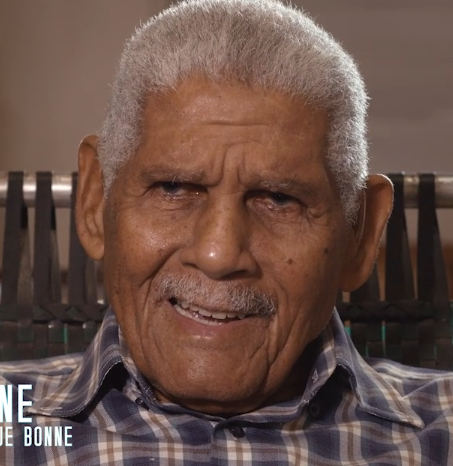Enrique Bonne has left an indelible mark on Cuba's musical landscape. Born in San Luis, a former province of Oriente, Enrique's musical journey was deeply influenced by his familial background. His father, José Bonne Moirano, was a skilled sugar puntist from the Ingenio Unión, while his mother, Engracia Castillo Griñan, was a piano teacher with a deep passion for music.
The fusion of these influences paved the way for Enrique's extraordinary musical career.
Enrique's early exposure to music occurred under the nurturing guidance of his mother. As his musical curiosity grew, he sought further instruction from notable teachers such as Oliván and Ventura Calzado. These formative experiences instilled in him a deep love for music and an innate understanding of its intricate nuances.

In 1950, Enrique Bonne began his journey as a music composer. A significant moment arrived in 1951 when his song "Italian Boy" was recorded by René del Mar and his band from Santiago de Cuba, marking the start of his remarkable musical legacy.
His compositions gained recognition over the years. "Chachachá de la Reina" became famous when performed by the Mariano Mercerón orchestra and the iconic Pacho Alonso. Other artists like Felipe Dulzaides and his group also contributed to popularizing his creations.
Aside from music, Bonne ventured into various endeavors. He co-founded "Modern Advertising" in the 1950s with Medardo Arroyo, showcasing his entrepreneurial spirit. Although he worked in broadcasting on Radio Turquino and the Cadena Oriental de Radio, his deep passion for music ultimately drew him back, leading him to focus exclusively on his musical career by 1959.
Enrique's influence extended beyond his compositions. He founded "Enrique Bonne y sus tambores," a percussion group that remains active today. They performed at various events, including the World Festival of Youth and Students, the Central American and Caribbean Games, and the Colombian Coffee Fair.
Throughout his career, Bonne created over 150 musical works across various genres, including danzones, boleros, guarachas, sones, canciones, sambas, and cha-cha-chas. He notably pioneered the Pilón rhythm, influencing celebrated musicians like Pacho Alonso, Fernando Álvarez, and Elena Burke.
Enrique Bonne received accolades and held significant roles, including being a Member of Merit of the UNEAC and serving as a jury member for popular music contests. He was also the president of the Cuban Association of Musical Authors in Santiago de Cuba and an honorary president of the Technical Artistic Council of the Provincial Music Center.
Enrique Bonne's legacy lives on as an embodiment of Cuba's rich musical heritage. His rhythms, compositions, and leadership have left an indelible mark on both national and international stages, shaping Cuban music's vibrant tapestry. His dedication, entrepreneurship, and unwavering passion continue to inspire musicians and enthusiasts alike.
